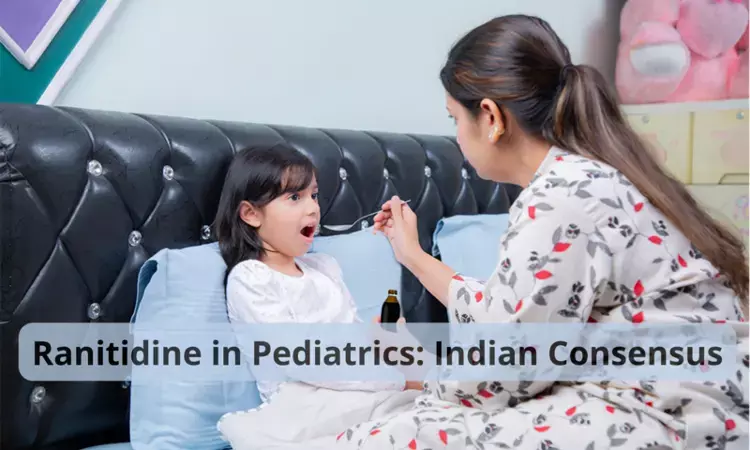- Home
- Medical news & Guidelines
- Anesthesiology
- Cardiology and CTVS
- Critical Care
- Dentistry
- Dermatology
- Diabetes and Endocrinology
- ENT
- Gastroenterology
- Medicine
- Nephrology
- Neurology
- Obstretics-Gynaecology
- Oncology
- Ophthalmology
- Orthopaedics
- Pediatrics-Neonatology
- Psychiatry
- Pulmonology
- Radiology
- Surgery
- Urology
- Laboratory Medicine
- Diet
- Nursing
- Paramedical
- Physiotherapy
- Health news
- Fact Check
- Bone Health Fact Check
- Brain Health Fact Check
- Cancer Related Fact Check
- Child Care Fact Check
- Dental and oral health fact check
- Diabetes and metabolic health fact check
- Diet and Nutrition Fact Check
- Eye and ENT Care Fact Check
- Fitness fact check
- Gut health fact check
- Heart health fact check
- Kidney health fact check
- Medical education fact check
- Men's health fact check
- Respiratory fact check
- Skin and hair care fact check
- Vaccine and Immunization fact check
- Women's health fact check
- AYUSH
- State News
- Andaman and Nicobar Islands
- Andhra Pradesh
- Arunachal Pradesh
- Assam
- Bihar
- Chandigarh
- Chattisgarh
- Dadra and Nagar Haveli
- Daman and Diu
- Delhi
- Goa
- Gujarat
- Haryana
- Himachal Pradesh
- Jammu & Kashmir
- Jharkhand
- Karnataka
- Kerala
- Ladakh
- Lakshadweep
- Madhya Pradesh
- Maharashtra
- Manipur
- Meghalaya
- Mizoram
- Nagaland
- Odisha
- Puducherry
- Punjab
- Rajasthan
- Sikkim
- Tamil Nadu
- Telangana
- Tripura
- Uttar Pradesh
- Uttrakhand
- West Bengal
- Medical Education
- Industry
Indian Consensus and Recommendations on Use of Ranitidine in Pediatrics-A 2022 Update

A recent national consensus statement from Indian experts reaffirms the benefits and safety of ranitidine in pediatric clinical practice.
Clinical Applicability of Ranitidine in India
For the first time, 13 Indian general pediatricians and pediatric gastroenterologists formed an expert panel to develop consensus statements that would serve as a guide to clinicians for the use of ranitidine in routine pediatric practice in light of evidence on its efficacy and safety.
The consensus statement & recommendations has been published in the October 2022 issue of the International Journal of Contemporary Pediatrics. The expert group prepared the consensus statements based on their clinical experience and extensive literature search intending to assess the safety and efficacy of ranitidine in pediatrics. A consensus was achieved and agreed upon by the Delphi method, which later formed clinical practice-based recommendations on use of ranitidine in pediatric patients.
Noteworthy highlights from the consensus pertaining to acid suppression therapy and specifically ranitidine are as follows:
- Ranitidine has a rapid onset of action compared to PPIs and can be helpful for the immediate relief of symptoms of gastritis.
- Ranitidine is preferred for on-demand use for the symptoms of gastritis.
- Ranitidine is effective in managing stress-induced gastric lesions in critically ill pediatric patients in ICU.
- Ranitidine reduces the gastric fluid volume when used as pre-operative prophylaxis.
- Ranitidine effectively prevents acid reflux at night.
- The incidence of GI and non-GI side effects with long-term use of PPI is higher than with ranitidine
- The risk of fractures is higher with long-term PPI use than with ranitidine.
- The risk of gut dysbiosis, Clostridium difficile, and respiratory infections is higher with PPIs as compared to ranitidine.
- The risk of acute kidney injury is higher with the use of PPIs when compared to ranitidine
The tolerability of ranitidine has been backed by multiple decades of scientific evidence, which has helped to hold its place in clinical practice.
Ranitidine Holds its Advantages Over PPIs
In the post-COVID era, children have had a substantial increase in gastrointestinal (GI) complaints such as acid reflux, bloating, abdominal pain, burping, vomiting, etc., due to home-bound restricted activities and increased idling. Histamine H2-receptor antagonists (H2RAs) and PPIs are the commonly used acid suppressants in pediatrics.
H2RAs like ranitidine has a rapid onset of action compared to PPIs; hence it can be a preferred choice for immediate relief of symptoms & on-demand use for acid suppression.
Indian experts highlighted that ranitidine has better efficacy than proton pump inhibitors (PPIs) in preventing nocturnal acid reflux. The experts recommend bedtime administration of ranitidine as prophylaxis in pediatric patients with nocturnal acid reflux, based on their clinical experience.
Studies have postulated that histamine plays a significant role in nocturnal acid secretion. PPIs are known to decrease gastric acid secretion, but it does not eliminate intragastric acidity during night-time due to a short plasma half-life of 2–4 hours. In addition, not all proton pumps are active simultaneously, and the generation of new proton pumps is a continuous and dynamic process. Thus, increased intragastric acidity, primarily during night-time, is a common phenomenon that can be managed well with bedtime H2RA in patients with persistent nocturnal symptoms.
Among the H2RA series, ranitidine gained popularity owing to its efficacy and better safety profile. Ranitidine is more cost-effective when compared to PPIs in short-term acid suppression and maintenance therapy.
Hence, Ranitidine will continue to hold clinical utility in the light of abundant scientific evidence, practical advantages like cost-effectiveness, and wide acceptance across medical fraternity in India.
Reference: Pai UA, Kesavelu D, Shah AK, Manglik AK, Wadhwa A, Acharya B, et al. Ranitidine use in pediatrics: current evidence-based review and recommendations. Int J Contemp Pediatr 2022;9:987-97.
Dr Kamal Kant Kohli-MBBS, DTCD- a chest specialist with more than 30 years of practice and a flair for writing clinical articles, Dr Kamal Kant Kohli joined Medical Dialogues as a Chief Editor of Medical News. Besides writing articles, as an editor, he proofreads and verifies all the medical content published on Medical Dialogues including those coming from journals, studies,medical conferences,guidelines etc. Email: drkohli@medicaldialogues.in. Contact no. 011-43720751


